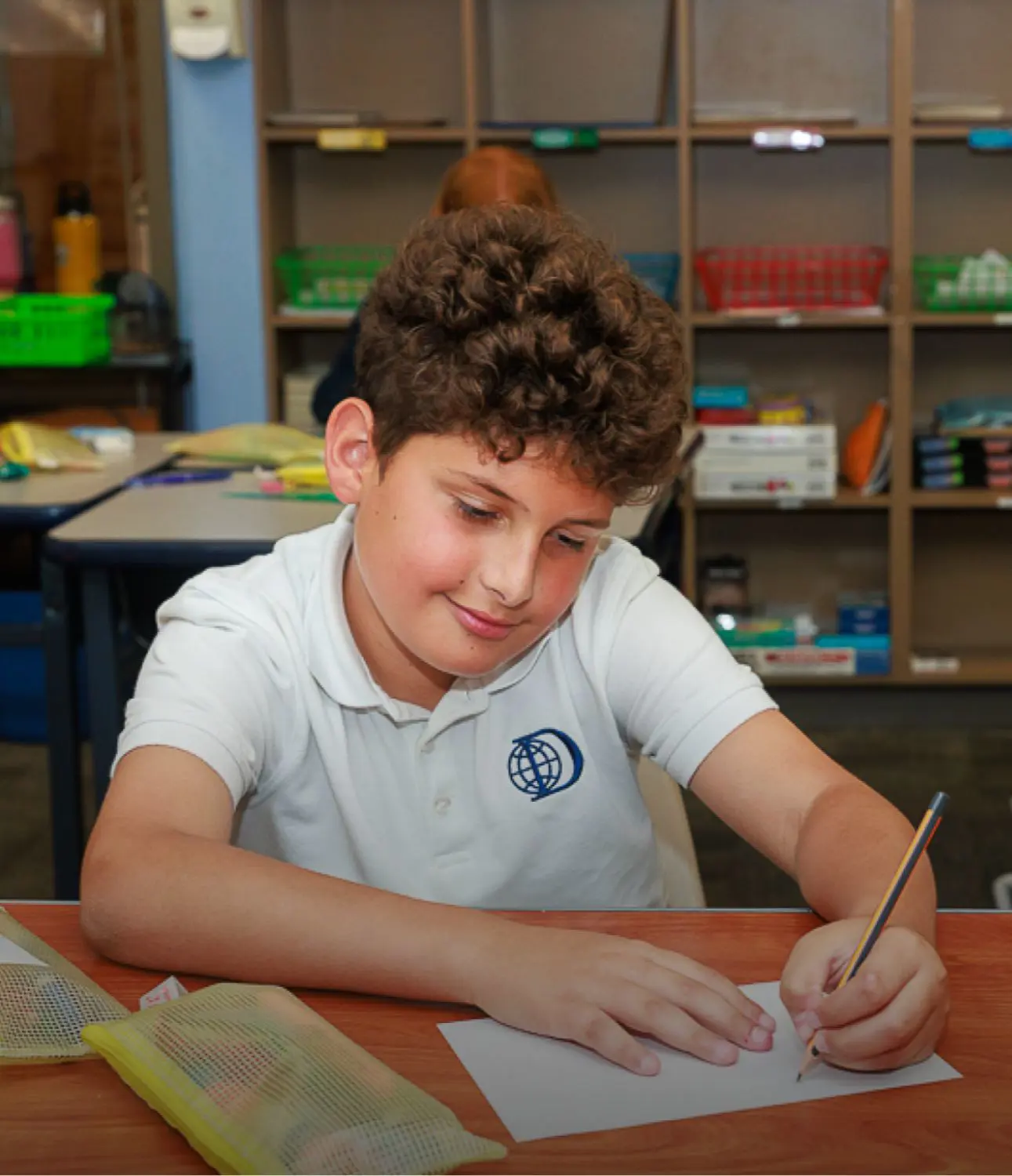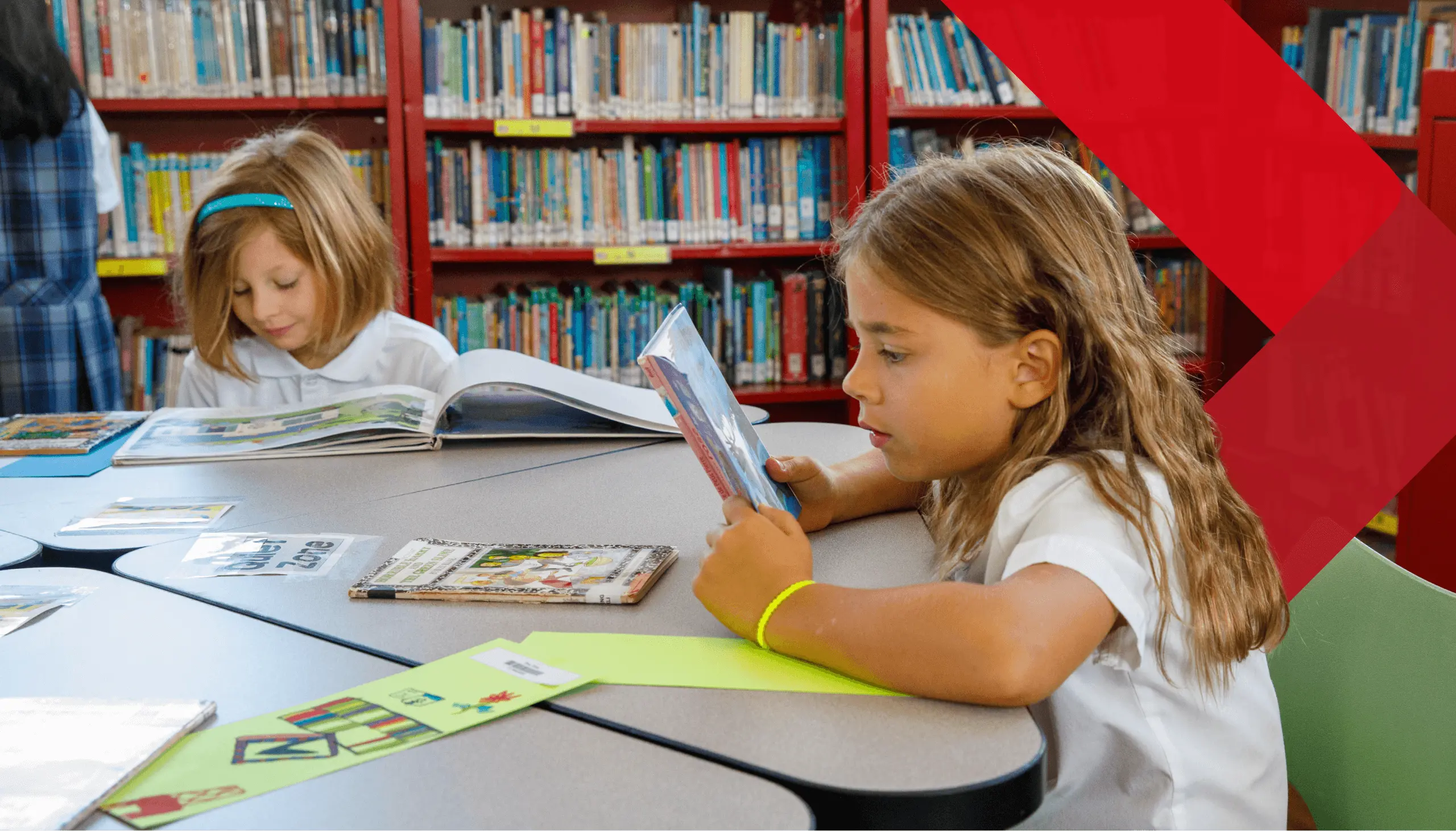Elementary School
Dallas International School’s Elementary School academic program builds on Early Childhood learning and places continual focus on personal, social, and academic growth and development.
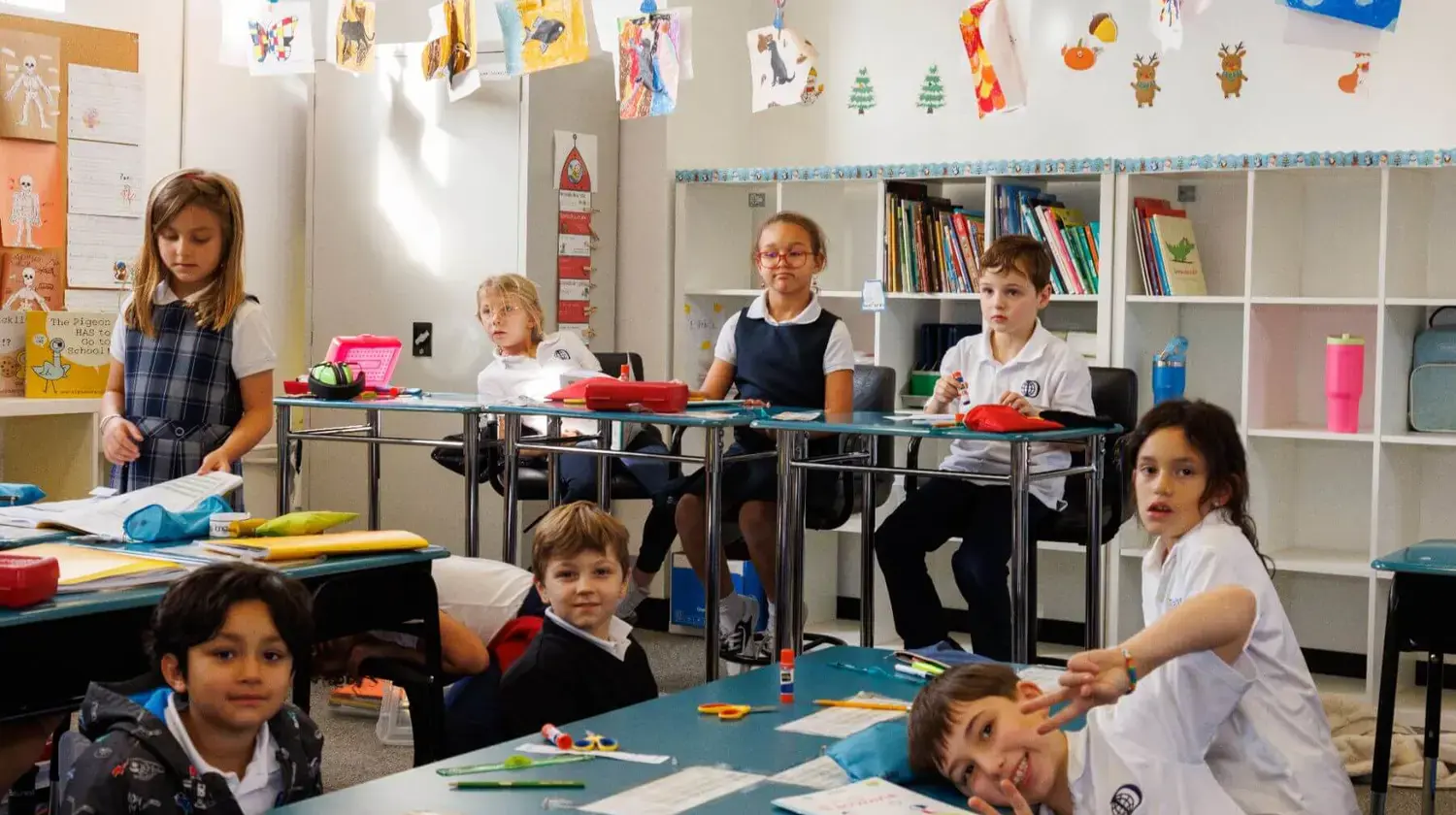
At DIS, our academic and extracurricular programs are underpinned by our school’s mission and core values. Our mission as a community is to inspire students to become multilingual global citizens who pursue a lifelong journey of discovery and action where the quest for deep academic knowledge and an appreciation of world cultures contribute to the advancement of humanity. Our core values are empathy, integrity, resilience, respect, and responsibility.
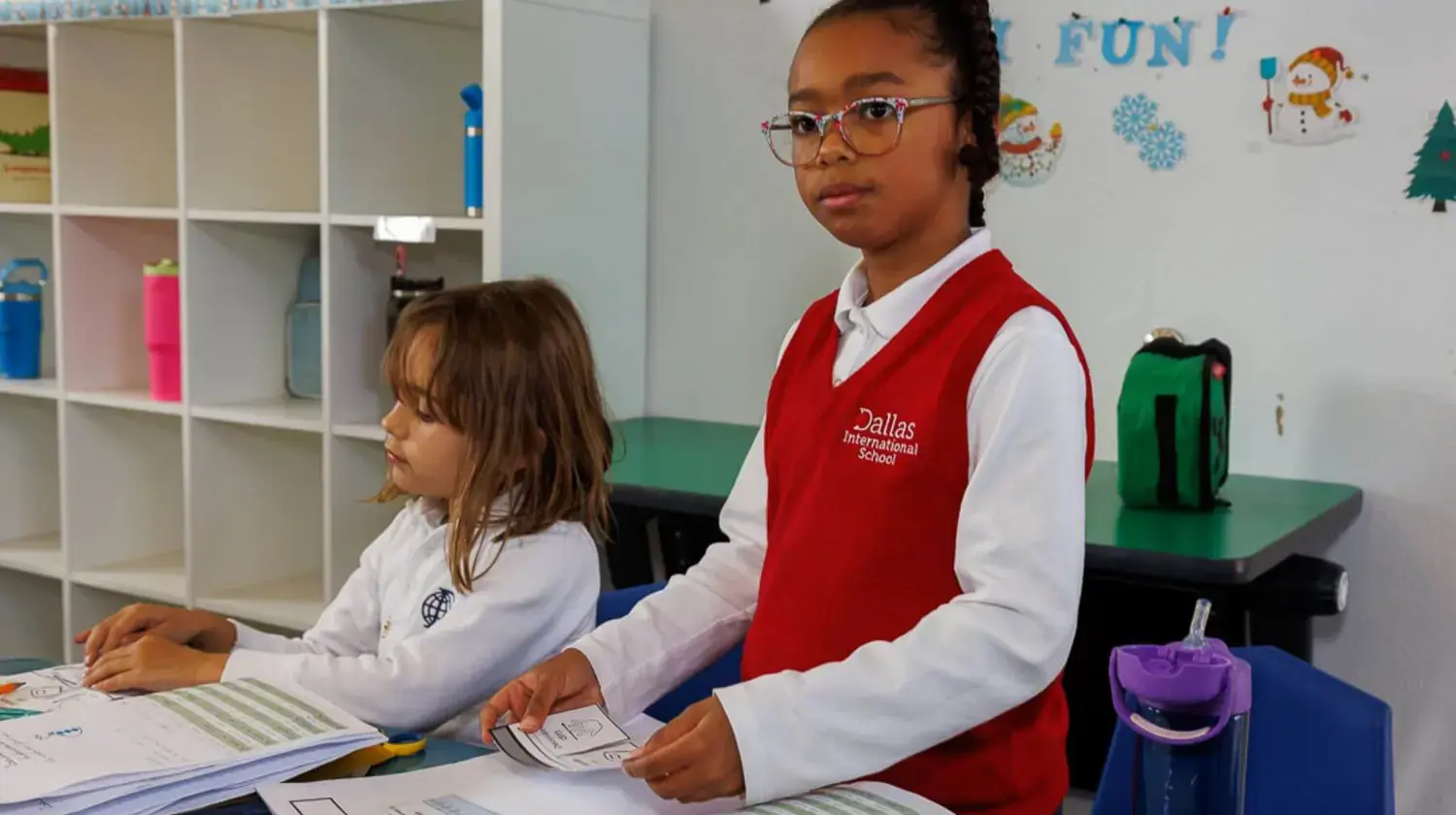
Our program is divided into 3-year learning cycles that allow students to learn at their own pace while building a solid foundation of knowledge and skills that will successfully propel them into Middle School. Cycle 2 (1st-3rd grades), the Fundamental Learning Cycle, focuses on the development of students’ plurilingual reading, writing, and numeracy skills. They also engage in the arts, social studies, technology, and the sciences through inquiry-based courses.
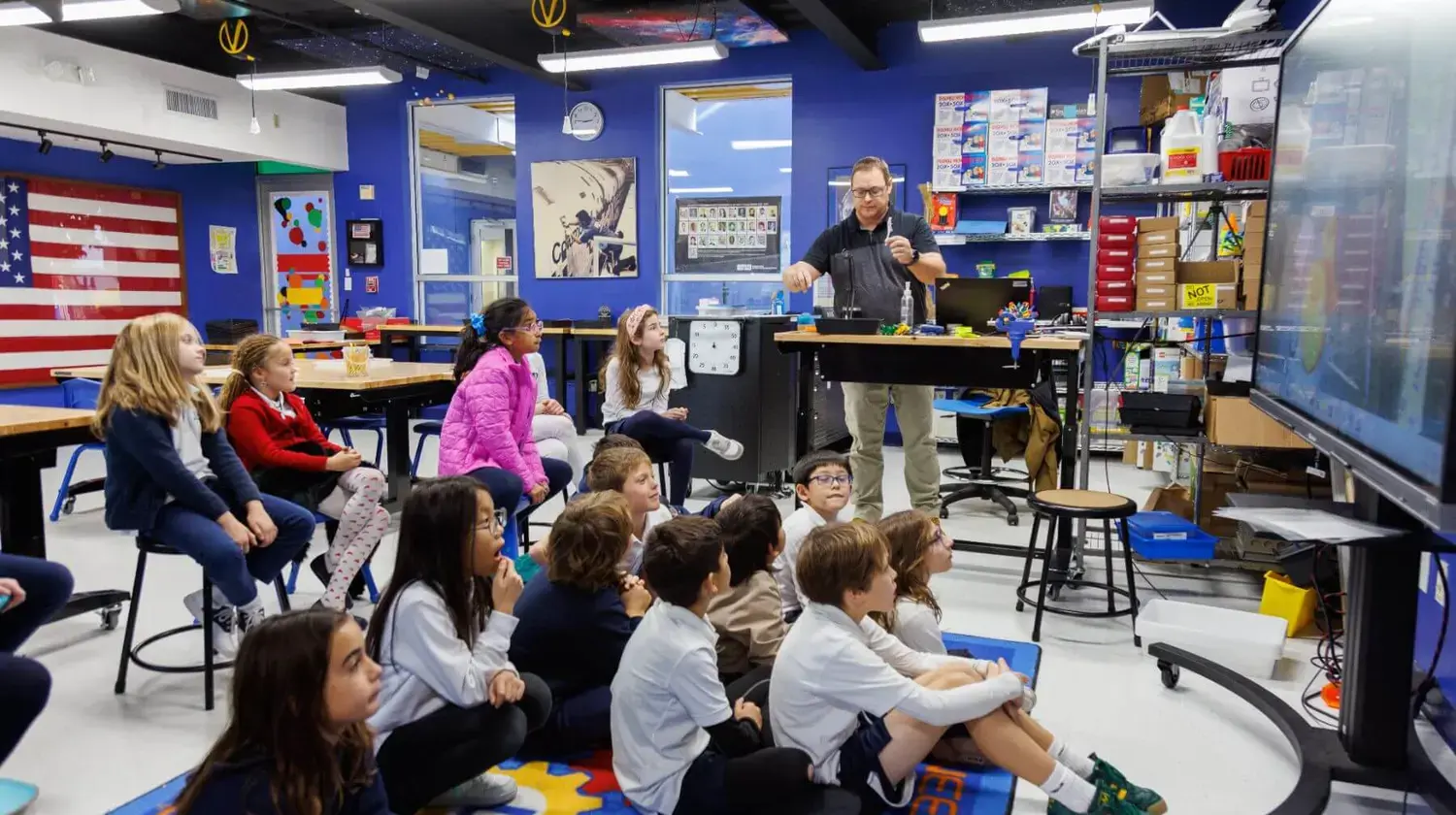
Cycle 3 (4th-6th grades), the Consolidation Cycle, begins at a critical year when students go from learning to read to reading to learn. In addition to furthering their plurilingual reading, writing, and numeracy skills, they engage in the explicit study of history, geography, science, technology in greater depth. Throughout Elementary School, students also study civics with the goal of living out the DIS Core Values and contributing to a strong sense of community.
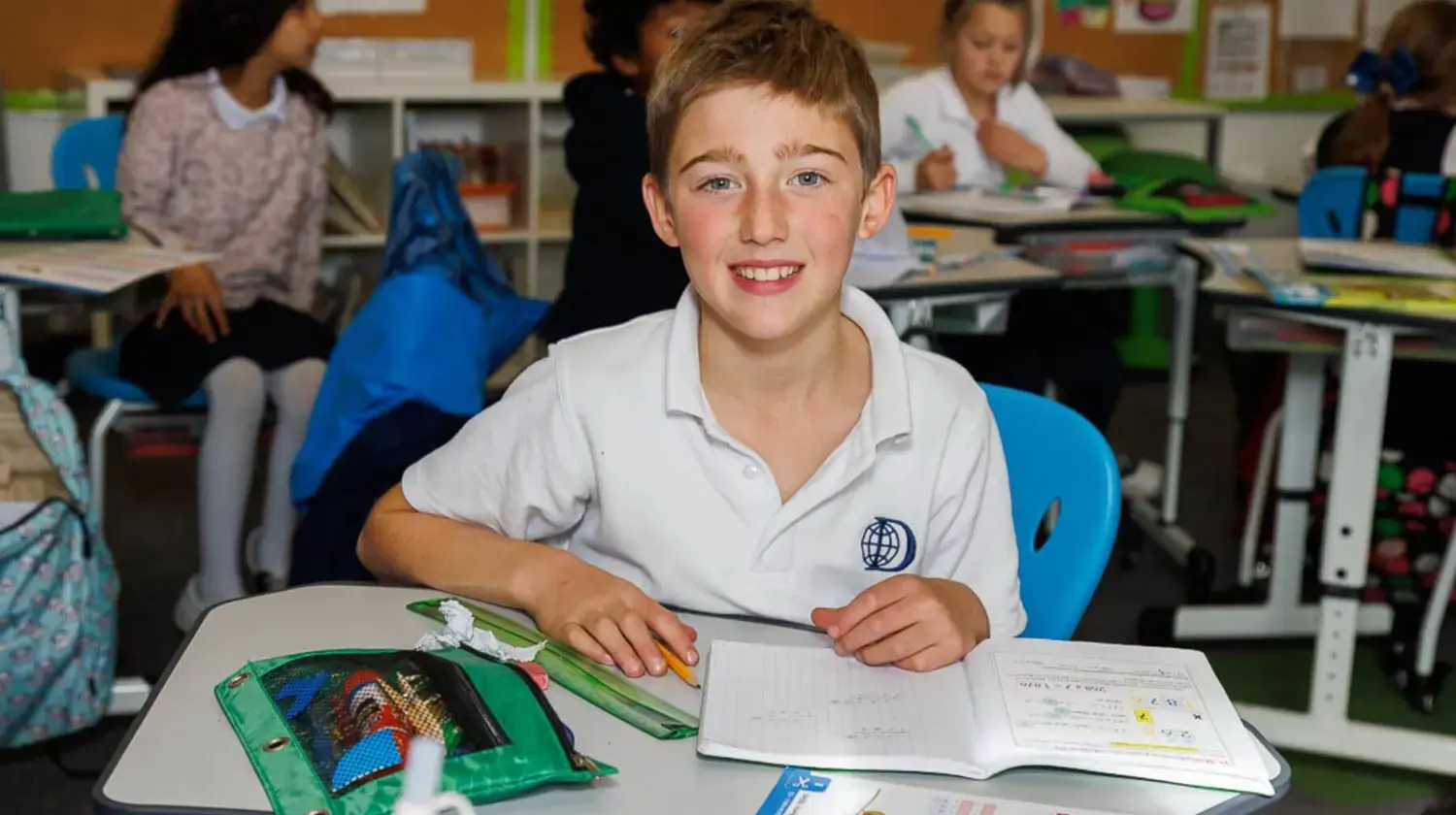
Elementary Students also enjoy learning about international cultures and traditions. DIS’s rich parent body aids in this learning. DIS celebrates Hispanic Heritage Month, Lunar New Year, Black and Women’s History Month, Cinco De Mayo and more.
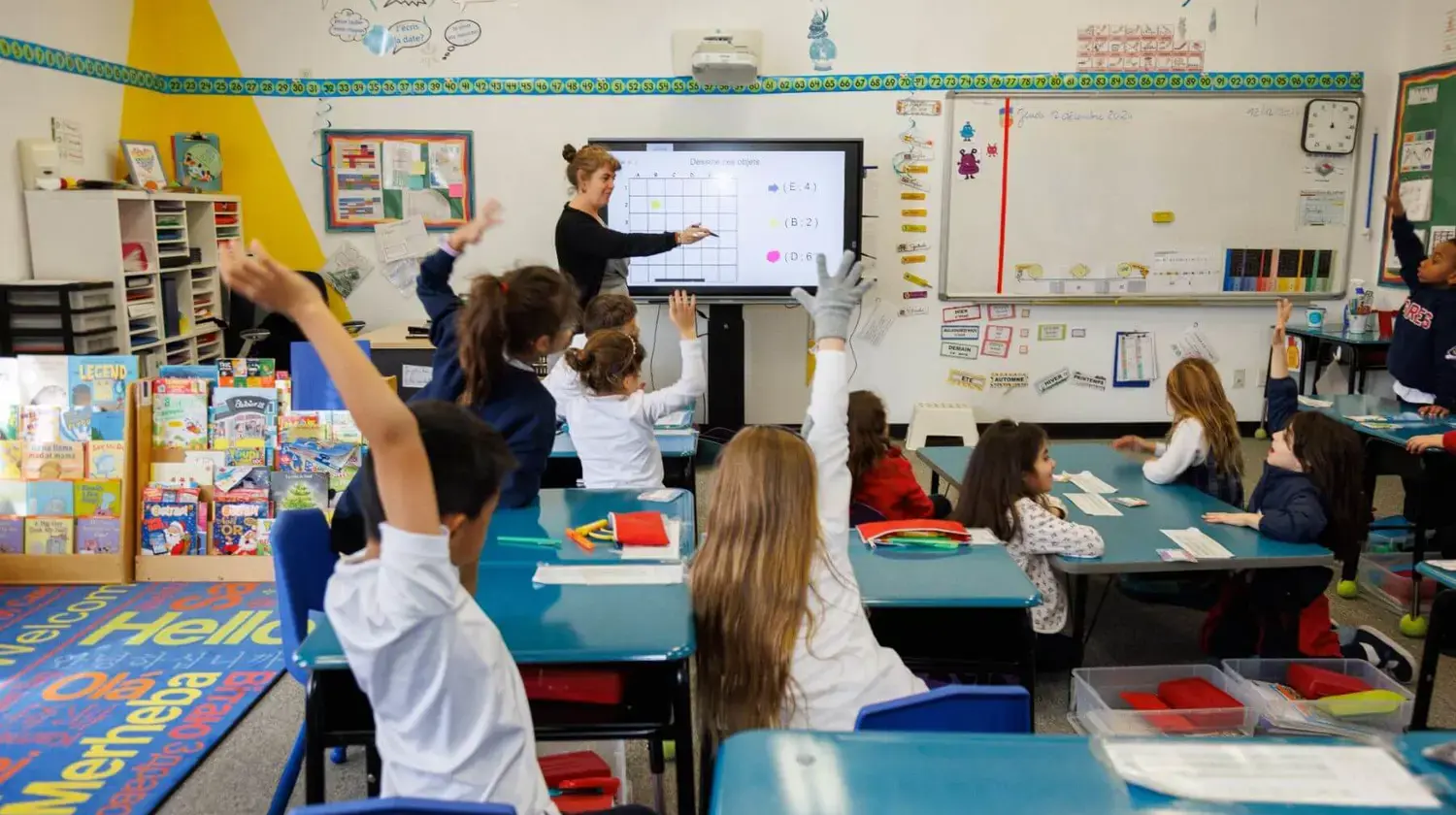
Students in Grades 1-3 that are not fluent in French can enter the French Immersion Program. This program allows a small cohort of students to immerse in French language skills while learning core curriculum principals, allowing them to matriculate into grade level classrooms within the year.
Dallas International School is home to the only elementary program in north Texas that is accredited both regionally
(Independent Schools Association of the Southwest) and internationally (Ministry of French National Education).
Both accrediting bodies require DIS to meet high standards that ensure a safe, engaging, and rigorous environment through which children can learn and grow. In order to ensure ongoing compliance with these standards, DIS is required to file annual reports and host regular visits from both agencies.
Learn More about our Elementary Program
Elementary
Curriculum
Grades 1 - 5
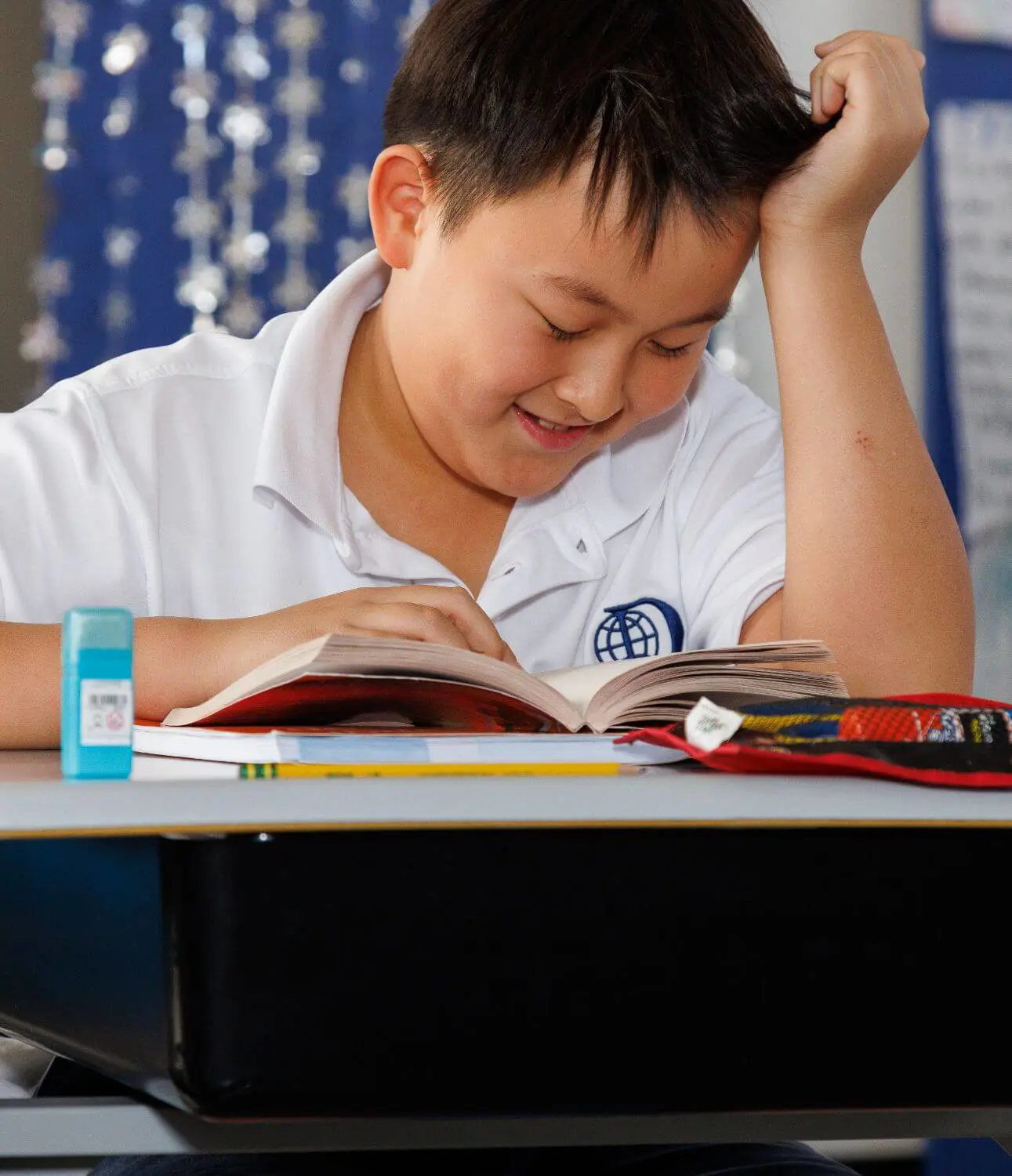
Academic Focus Areas
- Oral Language
- Reading and Writing Comprehension
- Literature and Culture
- Mathematics
- Global Inquiry: Earth, Life, and Social Sciences
- Civics
- Physical Health Education
- STEM
- Third Language (Spanish or Mandarin)
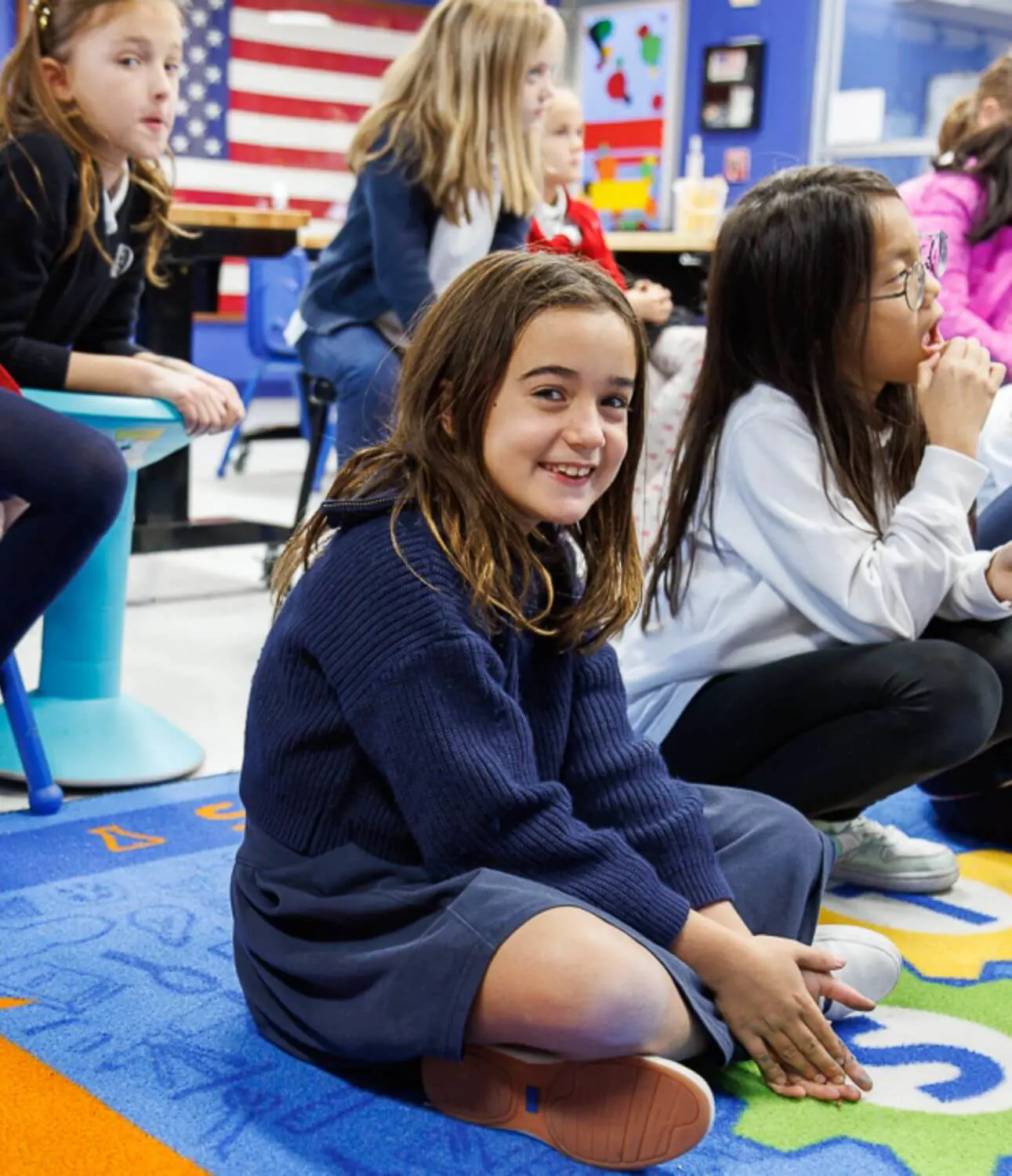
First Grade/CP
First Grade is the first year of Cycle 2 learning.
This foundational year focuses on students’ progression in language, culture, and individual responsibility. Students transition to more French language instruction while continuing work in English and a third language. US mathematics instruction is also introduced, and STEAM education continues. First Grade students begin to embody the values of global citizens as they grow physically, emotionally, socially, and artistically while also advancing their cognition and academic skills. First Grade students develop academic skills as they read longer and more complex texts, build their academic vocabulary, and write more elaborately and correctly. They explore science and social studies objectives while building character. As multiple languages develop, so does cognition and morality.
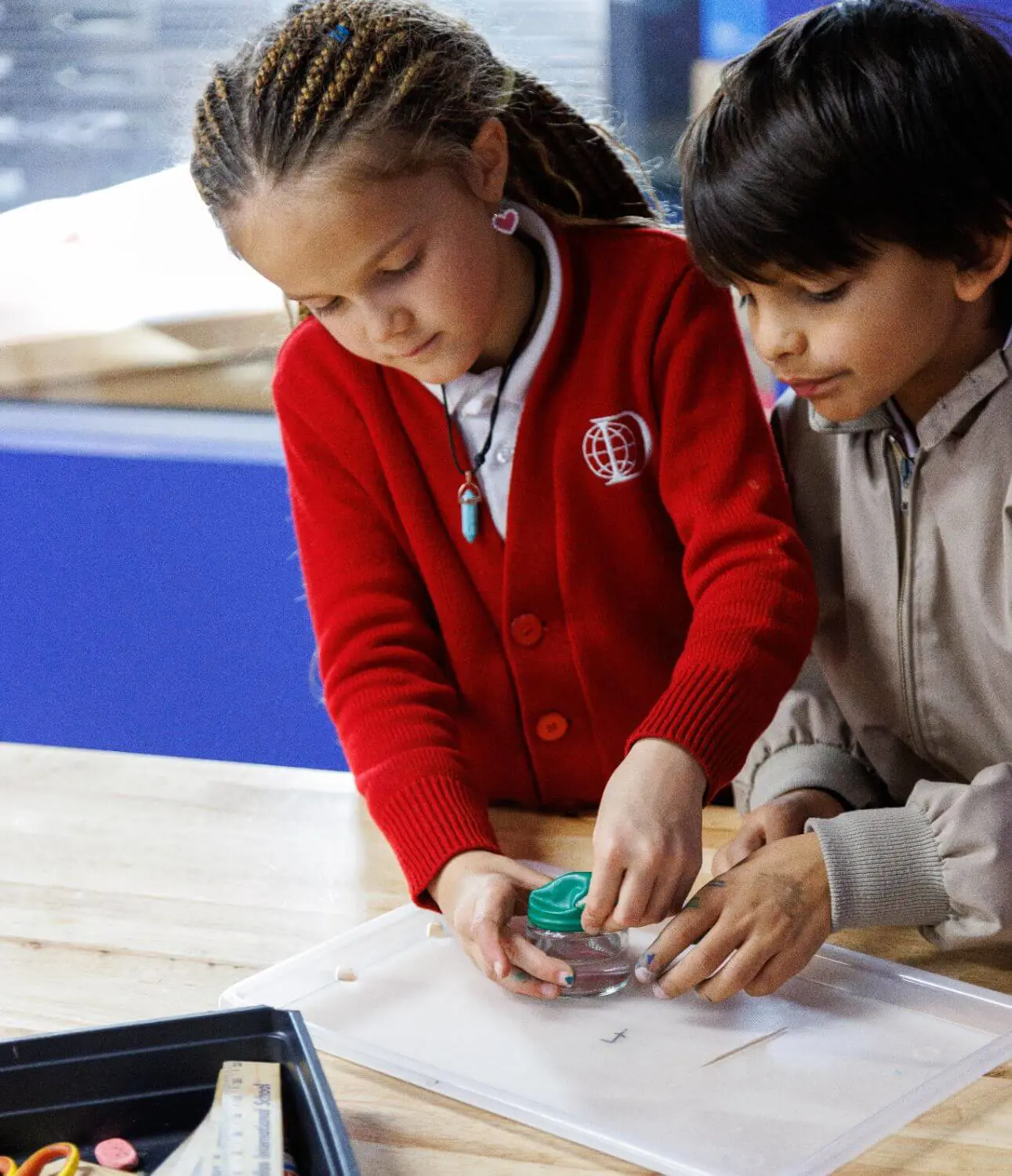
Second Grade/CE1
Second Grade is the second year of Cycle 2 learning.
Students are introduced to more complex topics and they focus on the development of listening, speaking, reading, and writing in both the fiction and non-fiction genres. Students read novels and leveled readers more often than children’s books. There is a focus on reading to understand and supporting conclusions with evidence from the text. Students continue in their growth as global citizens and leaders as they establish greater skills in self-expression. Academic vocabulary and higher order thinking skills are enhanced through more rigorous activities and higher expectations for learning. Second Grade is focused on developing academic skills, socioemotional understanding, and cultural awareness. Reading and writing becomes more developed in both English and French. Both fiction and non-fiction texts are central to learning while oral and written expression is demonstrated at higher levels. Science and social studies delve into more complex content, and students analyze, evaluate, and create more often. Cognition continues to grow as students are expected to demonstrate an understanding of concepts, but also independent thought and reasoning around those ideas.

Third Grade/CE2
In Third Grade–the third and final year of Cycle 2–students continue learning to speak, read, and write in French and English.
The development of oral fluency and written language skills are accompanied by the study of language mechanics. This explicit study of language enables students to produce accurate and intentional oral statements, as well as simple, organized, and punctuated writings of increasing complexity. Students also begin to refine their spelling skills across languages and in all subjects, which provide an authentic space for them to explore the use of language. Through global inquiry, visual arts, and music, students are provided with opportunities to take an interest in natural phenomena, interpreted forms, and varied representations. They are provided with the opportunity to describe and compare them, and to begin to use–both orally and in writing–vocabulary and forms of expression specific to different subject areas. Students in Third Grade are well adapted to the DIS’s multilingual curriculum and continue to develop fluency in three languages. With increased study in both French and English, student proficiency in these languages becomes more advanced. They listen, read, write, and speak in both languages with more confidence and accuracy. Because social vocabulary has been mastered for most students, there is an increased focus on developing academic vocabulary in both languages. At the end of the year, students demonstrate great social responsibility in addition to higher cognition in all academic areas. Higher order thinking skills, such as evaluating, analyzing, critiquing, and creating are evident in both spoken and written expression.
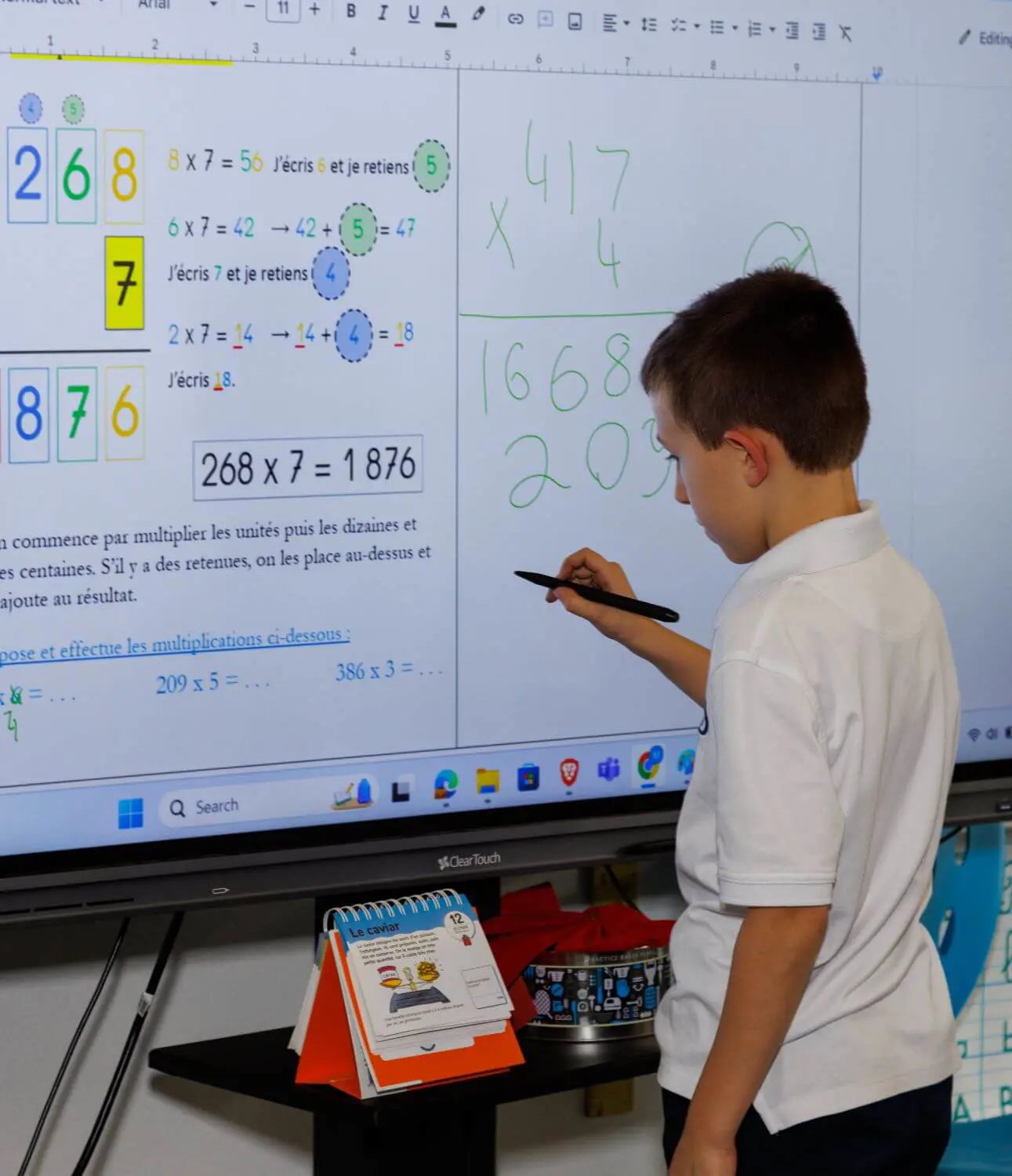
Fourth Grade/CM1
Fourth Grade is the first year of Cycle 3–a year during which students use their foundational skills acquired in Cycle 2 to deepen their content knowledge and skills.
In short, students move from learning to read to reading to learn. With increased mastery and confidence in the use of literacy and numeracy skills, students are now able to use these notions to engage in increasingly deep and authentic learning in all subject areas. They become more independent and responsible with their work. By the end of Fourth Grade, students are autonomous and developed thinkers, readers, and writers. They think critically, draw thoughtful conclusions, and use valid evidence to support their ideas. They problem solve and apply mathematical concepts independently. They are well prepared for success in Fifth Grade–the final year of Elementary School– where increased autonomy and responsibility are expected.

French Immersion Program Grades 1-3
Students in Grades 1-3 that are not fluent in French can enter the French Immersion Program.
This program allows a small cohort of students to immerse in French language skills while learning core curriculum principals, allowing them to matriculate into grade level classrooms within the year.
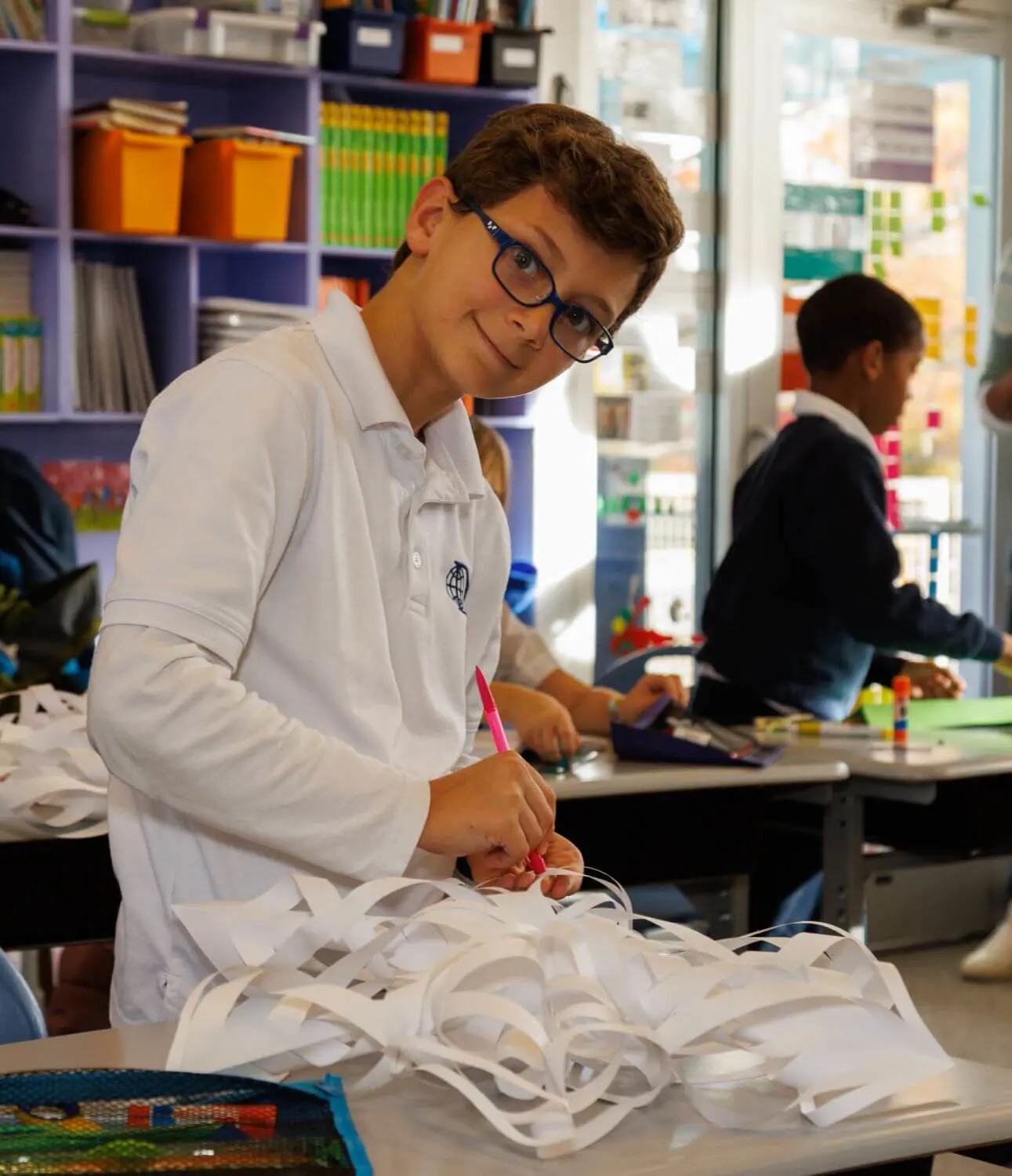
Fifth Grade/CM2
Fifth Grade is the first year that our program splits into 2 tracks:
- The French Program that works towards the French Baccalaureate
- The International Program, taught in English, which continues to offer language skill development and works towards the International Baccalaureate degree programs
At DIS, Fifth Grade students are housed at our Waterview Campus to prepare them for transition to the Middle School Programs.
Fifth Grade - French Track:
Fifth Grade–the second year of Cycle 3–represents students’ final year of Elementary School. Students reinforce the basics acquired during the previous school years and work in depth in the development of their language, social studies, mathematical, scientific, technological, physical, and artistic skills. Students are independent and take full ownership of their work, using various skills acquired in Elementary School to extend and support learning in all content areas. During this transitional year, students continue to develop their independence and critical thinking skills. They develop their leadership skills and have agency in their learning. By the end of the year, students have the skills and confidence to successfully enter Middle School.
Fifth Grade - International Program taught in English:
Dallas International School’s International Program taught in English begins in fifth grade and is a stepping stone for the International Baccalaureate Middle Years Program (MYP) beginning in middle school. This culminating year of elementary school is aligned with the Texas Essential Knowledge and Skills (TEKS) and is designed to support students’ socioemotional growth while providing them with opportunities to engage in an academically ambitious program.
Explore More

Early Education
